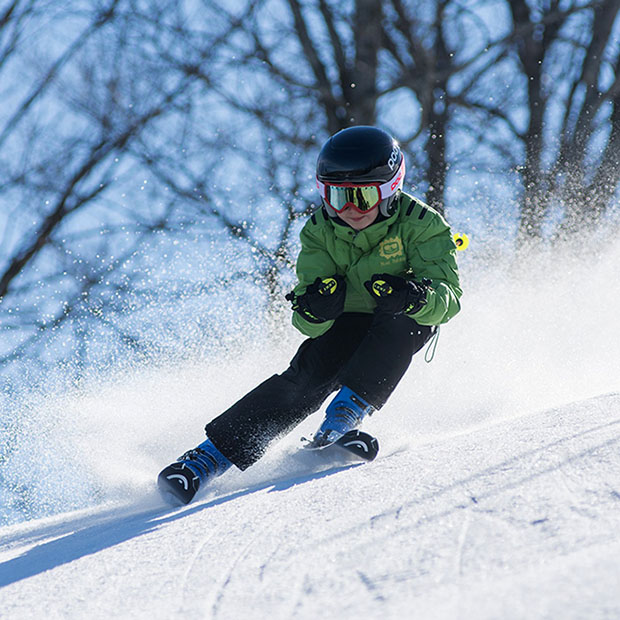Our Top Tips For Winter Eye Safety

Because it’s so much colder outside in winter, our instinct might be to assume that we’re safe from damage from the sun.
Unfortunately, this is not the case. We are just as vulnerable to harmful UV rays in winter as we are in summer. Our skin might be mostly bundled up from the cold, keeping it safe from UV rays, but what about our eyes? And what about other ways our eyes are vulnerable in the winter months?
Snow Blindness: A Winter Sunburn On Your Eyes
One way the sun can impact our eyes in winter is snow blindness. Too much sunlight can actually sunburn our eyes and cause temporary blindness, and this condition is much more common in winter due to sunlight reflecting off the snow. Because it can take hours for symptoms to appear, we often don’t know we have it until it’s too late and we’ve been exposing our eyes to all that sunlight for even longer. Luckily, there are things we can do to protect our eyes from winter conditions.
Sunglasses: Not Just A Summer Look
If you think sunglasses are only for summer, think again! A pair of polarized, 100 percent UV-blocking sunglasses are your best defense against harmful UV rays when you’re going about your day in snowy conditions.
Don’t Hit The Slopes Without Your Goggles!
Those of us who enjoy skiing or snowboarding will actually be exposed to more UV rays than people who prefer summer activities, because the atmosphere is thinner at high altitudes, making the sunlight harsher. This is just one reason ski goggles are a crucial piece of equipment for winter athletes.
When you’re looking for the right pair of ski goggles, there are a few things to consider. In addition to finding goggles with 100 percent UV protection, you can buy a pair that has vents or an anti-fog coating, preventing them from fogging up when you get going. Polarized lenses will eliminate that harsh glare off the snow, making it much easier for you to see the slope. If you wear prescription glasses, you can also find ski goggles that fit comfortably over them.
Combating Dry Eye In The Winter Air
The air can often be drier in winter than at other times of the year, and the heating we use indoors can dry it out even more. This can leave our eyes dry and irritated. To fight back against dry eye in winter, make sure you’re staying hydrated, use the seat warmers in the car a little more and the heater a little less, and consider getting a humidifier for your home.
Ask Us For More Winter Eye Protection Tips
If you’d like to know more about what you can do to protect your eyes from snow blindness, winter dry eye, and other problems we’re more susceptible to in the colder months, just let us know! We want to make sure all of our patients have the information and tools they need to keep their eyes healthy year round!
